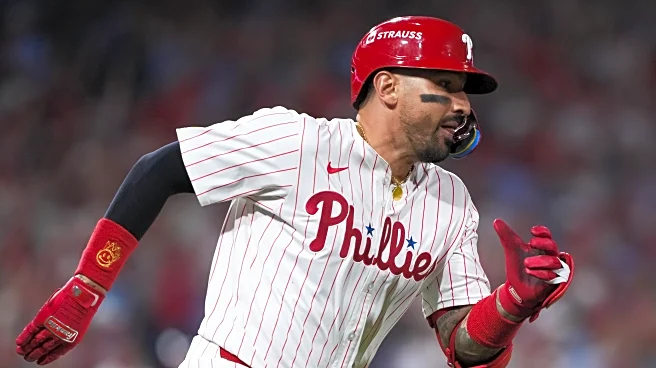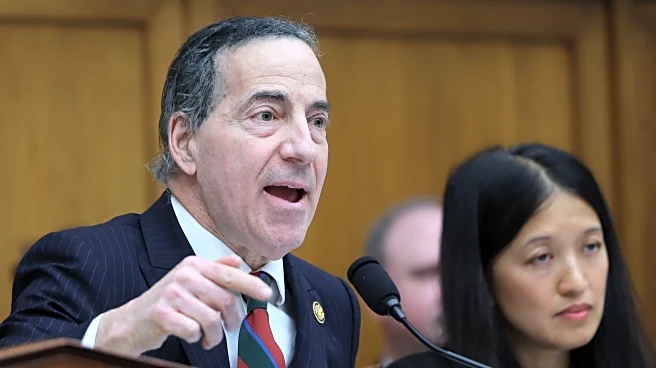What's Happening?
The Chicago Cubs are entering a critical offseason as ten of their players have become free agents following the conclusion of the MLB season. The list includes notable names such as Ryan Brasier, Willi
Castro, Aaron Civale, Brad Keller, Drew Pomeranz, Taylor Rogers, Carlos Santana, Mike Soroka, Caleb Thielbar, and Kyle Tucker. Among these, Kyle Tucker is expected to be the most sought-after player, potentially commanding a $500 million contract. Tucker's performance as one of the top hitters and outfielders in baseball makes him a key figure in the free agency market, despite not ending the 2025 season as he might have hoped.
Why It's Important?
The departure of these players, especially Kyle Tucker, could significantly impact the Cubs' roster and their competitive edge in the upcoming season. Tucker's potential move to another team could shift the balance of power within the league, as his skills are highly valued. The Cubs will need to strategize effectively to fill the gaps left by these free agents and possibly pursue new talent to maintain their performance levels. This period of transition is crucial for the Cubs as they aim to rebuild and strengthen their team for future success.
What's Next?
As the free agency period begins, the Cubs will likely engage in negotiations to retain some of their free agents or seek new players to bolster their lineup. The team's management will need to make strategic decisions regarding contracts and player acquisitions to ensure a competitive roster for the next season. The outcome of these negotiations will be closely watched by fans and analysts, as it will shape the Cubs' prospects in the league.
Beyond the Headlines
The free agency period also highlights the broader economic dynamics within Major League Baseball, where player contracts can reach astronomical figures. This underscores the financial pressures teams face in maintaining competitive rosters while balancing budget constraints. The decisions made during this period could have long-term implications for the Cubs' financial health and their ability to invest in player development and infrastructure.










